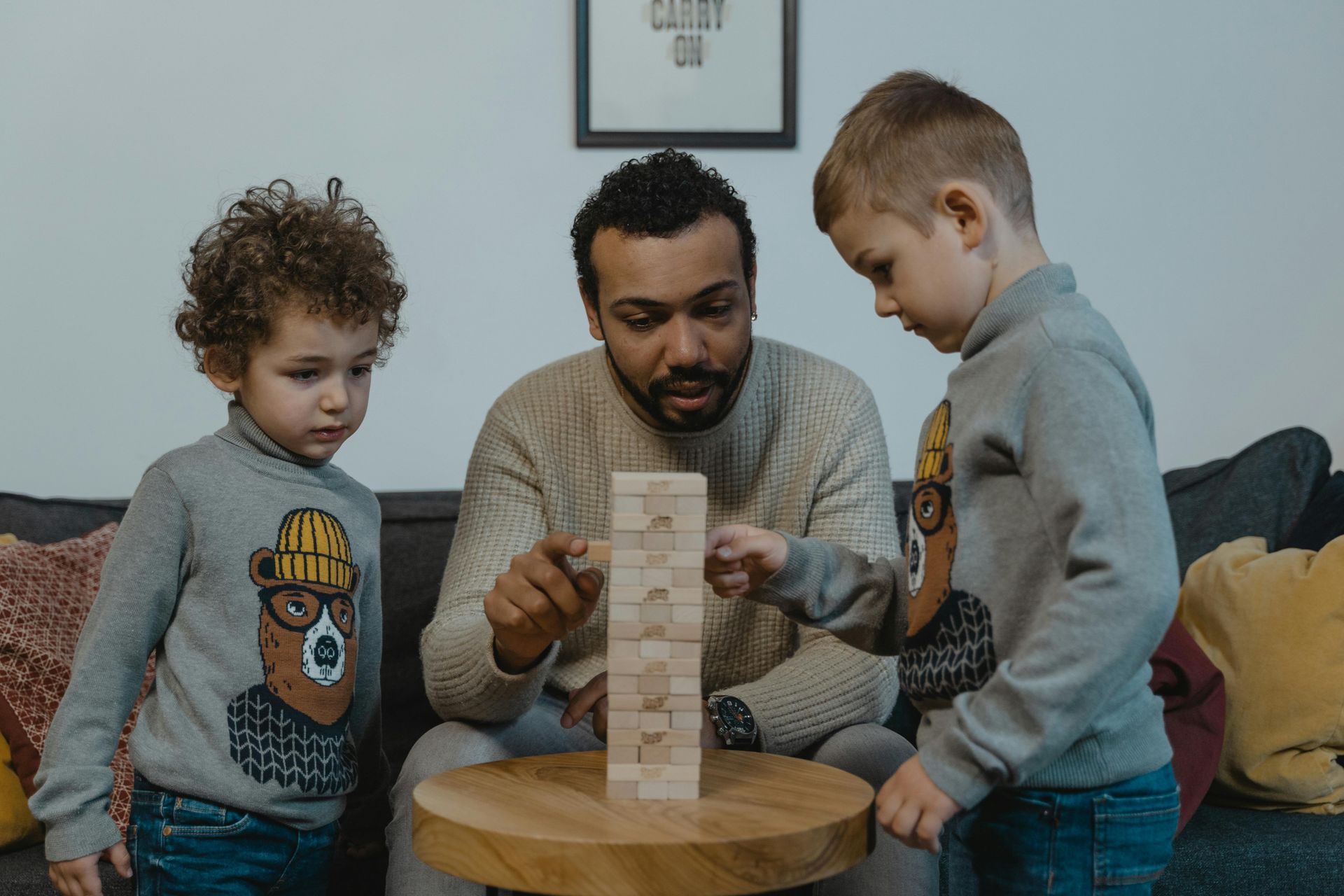Before You Seek Therapy For Your Child
Tracy Lamperti

Photo by Michelle Kaye
Before You Seek Therapy for Your Child*
10 Helpful Tips!
- Cut out 20% of the TV watching (100% of the shows depicting violence, disrespect of parents, dummying down of fathers/husbands, and those that portray women as sex objects).
- Reduce “electronic time” (computers, texting and internet phones, video games) by 40% (100% of games depicting graphic violence or any level of sex).
- Clean out 60% of the sweets and processed foods in your house.
- Find a way to stop 80% of the strife between the adults in the home. Seek professional help if necessary.
- Fill these voids with “family time.” Get your children interested in the hoards of toys they have that are buried in a closet or under their bed.
- Wait one month. If you are still concerned about your child, consider what you (the adults) need help with to build a stronger family and support the child you are concerned about.
- If you are still concerned about your child, interview therapists. Always consult with the therapist prior to bringing your child in for a session.
- Gain as clear of an understanding as you are able about how the therapist works;
- What is the therapist’s experience with issues that you are concerned about?
- To what degree does the therapist involve parents? There is a large spectrum of views, from the therapist meeting behind closed doors with the child, wherein everything is confidential between therapist and child, to family sessions where parents are present during all sessions.
- What is the plan? Is it a “let’s get started and see what happens” approach, or are there goals and a review date set at the first session.
- Just what does the therapist do with the child in sessions? Do they play games? Draw? Free Play? Role Play? Work on worksheets and specific skill development? Meditation? Music? In a recent case, I began working with a child who came from a therapist who “played games” during all of the sessions. Upon further inquiry, the games were on a Wii. Therapeutic? Maybe. Therapy? hmmm.
- Be sure to understand what will be required of you as the parent or guardian. Will there be homework? How exactly are you support the progress?
- Ensure that you, as the parent or guardian, know some of the background of the therapist. There are many controversial issues in our culture today. Some believe the therapist is supposed to be a “blank slate.” Some therapists belief they are a “blank slate.” No one is a blank slate. Some therapists are able to be very professional in the way in which they approach issues that are in conflict with their own beliefs. Some are also very honest in letting prospective clients know that there may be a conflict, wherein their child may be better served by a colleague or another therapist. I could present many different scenarios here, however, let me just say, you must not assume, for example, that a therapist is not, under any circumstances, going to talk to your child about a sexual issue, or a political issue, or any other controversial issue. In the event that there is a degree of difference between your family view of the topic and the therapist’s view of the topic, you may be creating more of an issue for your child.
*In circumstances where something sudden or out of the ordinary has come to light with a child, particularly if the child has experienced a trauma, demonstrated serious emotional symptoms, made statements indicating that they may be thinking of hurting themselves or someone else, or there are suspicions of abuse, a parent or guardian should consult with a professional immediately.

Do you get it that every time we seem to turn on the tv, news or in the movies these days the boys and men are getting terrible representation? Whether they are kowtowing to a bossy woman, making obscene gestures or noises, getting drunk or on drugs, committing some stupid crime, espousing the effeminate or acting like a pompus a__, or the countless other ways that they are being portrayed. What was wrong with Davy Crockett, or Huck Finn, Andy Griffith, Superman? Why have Sponge Bob and Homer Simpson and the many other “men” of today been selling by being so stupid? I am not up on any of today’s shows, but I get the point from the stories I hear, that it is not good. Even when an olympic star comes into the spotlight, all too often the story is tainted by some remark or behavior he made, not realizing everyone was watching. Where are the boys supposed to get their education? And what about the girls? Where are they supposed to learn who would make a good husband and father? What brought this on was my prepping for morning meeting tomorrow at the Lamperti Homeschool. I was looking for something good in The Children’s Book of Virtues , Edited by William J. Bennett, Illustrated by Michael Hague. I just happened to open to page 38, Boy Wanted , by Frank Crane. I won’t put the whole story here, but here is a sample.

What are those? Are those beans? What are they for? Can I touch them? One can learn a lot about a child by watching them play. Play gives us a glimpse into the thought process, emotions, relationships and the way they organise and put things together. With beans, even a teenager or adult can “sort things out” with beans, sand and other materials. Beans make a good medium for tea parties, hide and seek, play ground play, imaginative water, etc. In fact, beans can bring comfort to all ages. Children who don’t feel like they have a voice or have trouble sharing their thoughts and feelings often find themselves running their hands through the field of beans. The same goes for teenagers. Little ones, of course want to play with the beans, which provides a great opportunity to evaluate self-control, adherance to limits and their depth of imagination or level of organization. Beans are awesome! The video shown here represents a variety of bean benefits! An older adolescent, actually, a young adult, worked out many complicated issues in her sessions week after week while sorting beans. This person successfully sorted out ALL of the kidney beans, sorting on many levels! It is so curious to children to come to their therapy session and notice that something has happened involving the beans. It gives children and teens a real sense of commonality with others as well as insight. They come to learn that some people think like they do and some think differently, and it’s all ok. They learn that, while I may share something about the “beans,” I won’t “spill the beans.” They can trust that I will keep their confidence, just like I keep the confidence of the last “bean worker.” As you see in the video, a young person is re-mixing the kidney beans. This young person, being someone who really struggles with self-control and had been held back for weeks from mixing the beans that had been sorted out. We shared such a delightful moment when she was finally permitted to “mix!” Timing is so important, but relationship is more! So the cycle will continue when many young people come in this week and discover the new state of the beans! Tracy Lamperti, Psychotherapist, Educator, Consultant

What’s this? You didn’t know you could invite me to talk to your group of friends or colleagues, for FREE! Yes, it’s true! I am in my 25th year of practice and have set some ambitious goals to reach individuals with information about; Child Sexual Abuse Personal Safety Sexual Integrity For this entire year I will come to your group, at no charge (within a certain distance) and introduce or elaborate on a variety of topics, such as; Grooming – How sexual predators “groom”/or condition children for abuse and silence. Questions to ask of “Child Serving Organizations” to ensure to the best of your ability that the program is as safe as possible for children from sexual abuse. Things to consider when taking your family out in public or on vacation to raise awareness of safety and protection. Sending your child to school as a confident child who will resist negative influences, stand up against bullying and respect themself and others. Building a family environment where media and electronics do not destroy. Teaching youth the truth about relationships and how to protect their heart and health from myths and pressures of our sexualized culture. and much, much, more! What is your group interested in talking more about? Contact me by phone, email, Facebook, twitter, linked in…….or any of these methods to ask me what I can do for your group, or tell me what your group needs. Thank you for allowing me to continue to serve! Tracy Lamperti 774-722-5919

